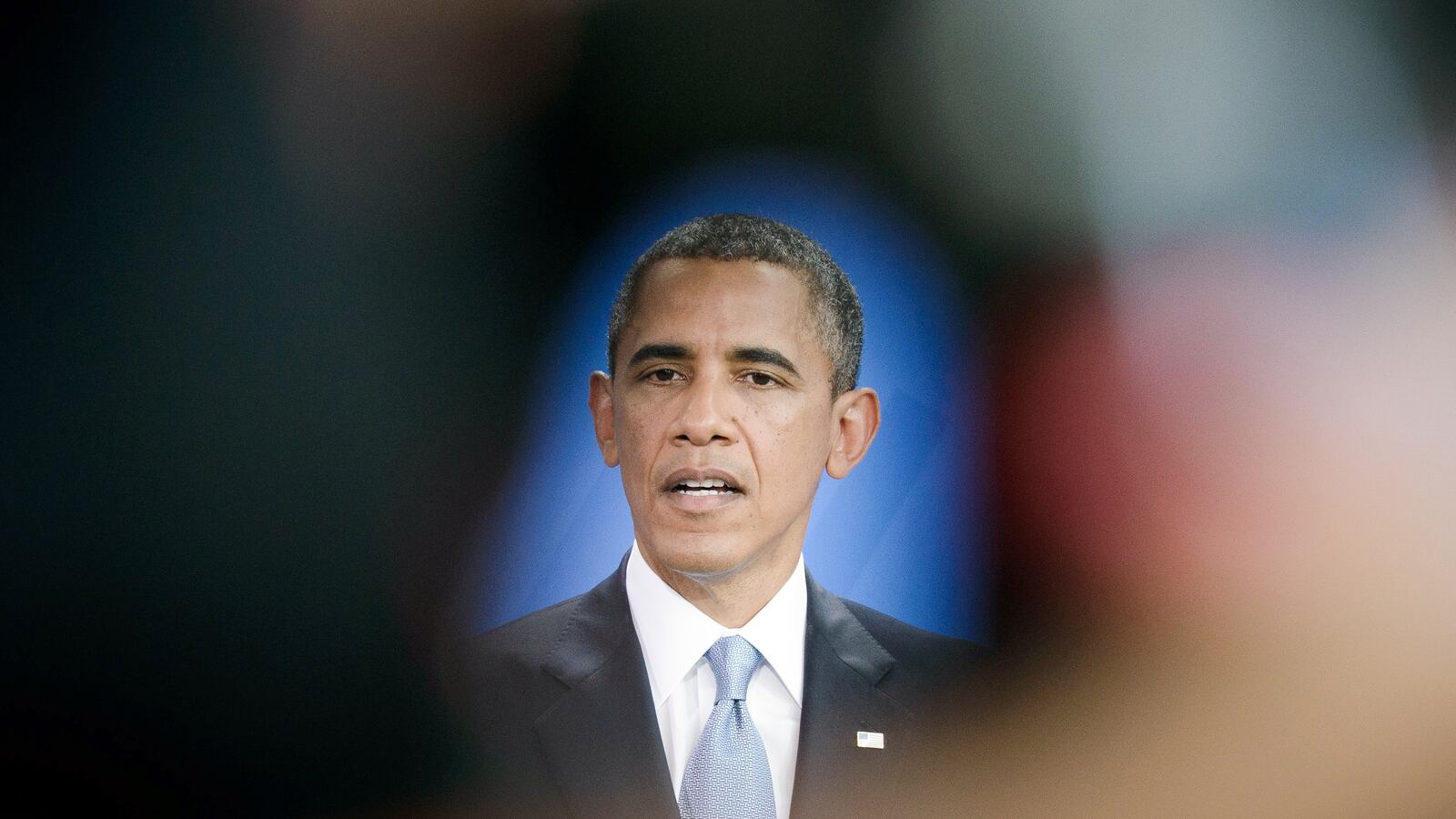If you saw the news at any point in the last month, chances are that you heard Barack Obama compared in some way to Richard Nixon and the Watergate scandal (BuzzFeed has my favorite compilation here). A quick and admittedly unscientific Google search on the comparisons turns up 1.7 million hits, and they are not limited to right-wing media or Republican politicians. Partisan and nonpartisan journalists across the political spectrum casually and frequently linked Obama to Nixon over and over again, this publication included.

A quick refresher for those of us who weren’t around during the Watergate Era: reams of hard evidence, unearthed through some heroic reporting and independent investigation, revealed that the president of the United States had personally and repeatedly used the power of the federal government—the IRS, the FBI, the CIA—to target and destroy his potential challengers for reelection.
From Nixon’s mouth: “Are we looking over the financial contributors to the Democratic National Committee? Are we running their income tax returns? We have all this power and we aren’t using it. Now, what the Christ is the matter?”
Indeed. The stated goal of the Nixon administration, spelled out in a memo from the White House counsel(!), was to “use the available federal machinery to screw our political enemies.” And that they did. Richard Nixon actually ordered IRS audits on his political enemies. He actually sanctioned multiple break-ins, including one of a psychiatrist’s office to steal the patient files of Daniel Ellsberg, a true whistleblower. At one point, he placed Ted Kennedy, his most powerful political opponent, under 24-hour surveillance. And six days after the Watergate break-in, Nixon told his chief of staff to “call the FBI and say that we wish, for the country, don’t go any further into this case, period.”
Just to provide some perspective, there was apparently a moment toward the end of the Watergate hearings where the Secretary of Defense told military commanders not to obey their commander in chief if Nixon tried to “restore order” by sending out troops.
That is some heavy stuff, people!
Fast forward to this, Our Summer of Scandal, where the impeachment hearings of Barack H. Obama should have been well underway by now. Instead, the facts that have emerged over the last month, through more solid reporting and independent investigation, are proving once again that the political media’s addiction to sensationalism and snap-judgment hyperbole has contributed to a lack of serious, informed debate about issues that badly deserve it.
The White House decision to release the Benghazi emails led to the shocking revelation that federal agencies with different equities often argue during the editing process of public documents, particularly when they involve information about a crisis thousands of miles away that’s evolving in real time. The emails also proved that a months-long effort to malign an outstanding public servant was severely misguided at best, and today Susan Rice is about to become the president’s national-security adviser.
After Congressman Darrell Issa mouthed off on the Sunday shows that he had hard evidence proving the Obama White House ordered the IRS to target Tea Party groups, he mysteriously refused to make public the transcripts of his interviews with IRS employees. Now we know why: in those interviews, a front-line IRS manager who described himself as a conservative Republican told Issa that he had no reason to believe there was any White House involvement at all. I can’t help but wonder if this interview took place before or after Issa called White House Press Secretary Jay Carney a “paid liar.”
Finally, there is the continued charge, tossed about freely on cable and Twitter, that the president of the United States is criminalizing journalism, waging a war on whistleblowers, and illegally spying on millions all over the world.
The attempt to reconcile our right to individual privacy with our right to a government that protects us from harm has been taking place for more than 200 years. It is, in essence, a debate about what it means to live in a free society, and we must constantly adapt our answers to a world where technology keeps offering new ways to pry and new ways to kill.
I would be horrified if we actually had another president like Nixon who abused these new tools to destroy his political enemies, or worse. But I would be even more horrified if our government failed to stop an attack that killed thousands because an email or phone call detailing the plot wasn’t discovered, or a leak jeopardized a U.S. asset inside a rogue state or terrorist organization, robbing us of critical information that could have saved lives.
The point is, I don’t believe the answers here are black and white. And most polls show that the public feels the same way. There is concern and a bit of confusion, with responses changing based on the way a particular question is worded.
But in a media age of hypercharged hyperbole, there is little room for gray. Individuals who break the law by leaking classified information have been too easily heralded as whistleblowers, even if there’s not yet proof they’ve exposed any wrongdoing. Obtaining relevant evidence about a criminal leak investigation from reporters has been too quickly equated with prosecuting reporters, even though not one member of the press has been charged with any crime. Secret national-security programs meant to keep us safe have been too casually labeled dangerously Orwellian, even as all three branches of our democratic government—two that are elected by the people and one that is independent and insulated from political pressure—continue to approve of their existence.
Yes, the potential for abuse exists. Authority must be questioned. Those in power must be held accountable to the people they represent, and a free, aggressive press has an indispensable role to play in that mission.
But it does not serve the public good when elected and government officials, be they Democrat or Republican, are constantly presumed guilty until proven innocent. When the American people are told that every action or decision is motivated by politics or power; when every mistake or misstatement is exaggerated into an instance of Nixonian malfeasance; when the line between impassioned advocacy and objective reporting ceases to exist, it does nothing but erode an already-fragile faith in our democratic institutions.
Many in the press have called for a national debate on privacy and security. And in the coming weeks, issues like climate change, immigration, and any number of controversial Supreme Court decisions will be added to the list. But national debates don’t just require a willing public, President, and Congress—they require a willing press that is able to report with a sense of nuance, patience, and perspective.
Here’s hoping we’re all up to the task.






